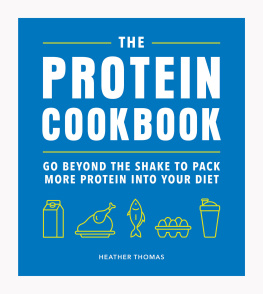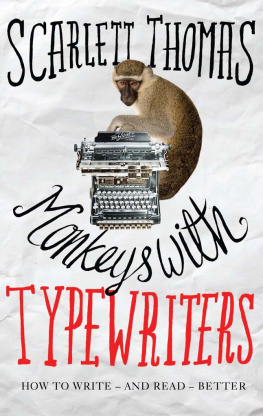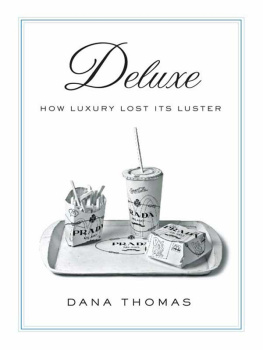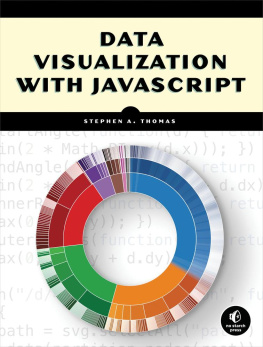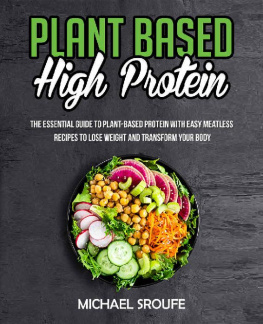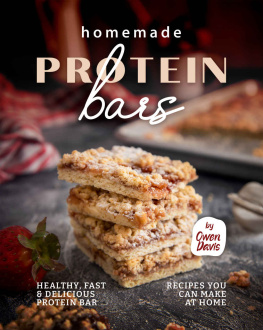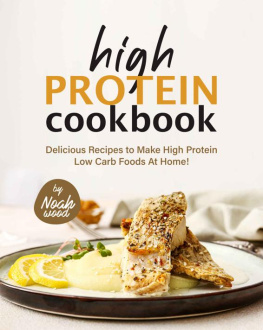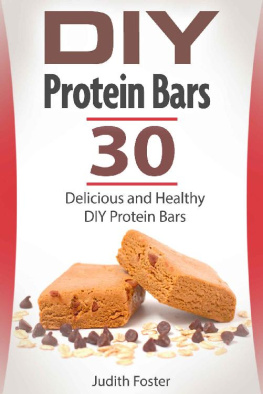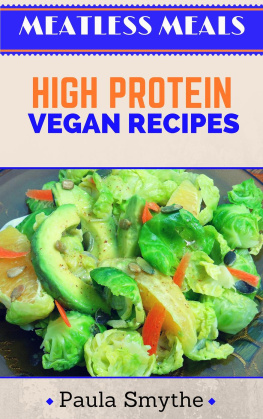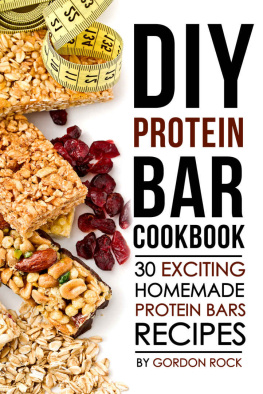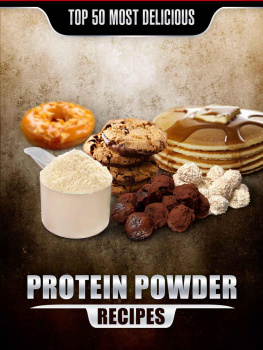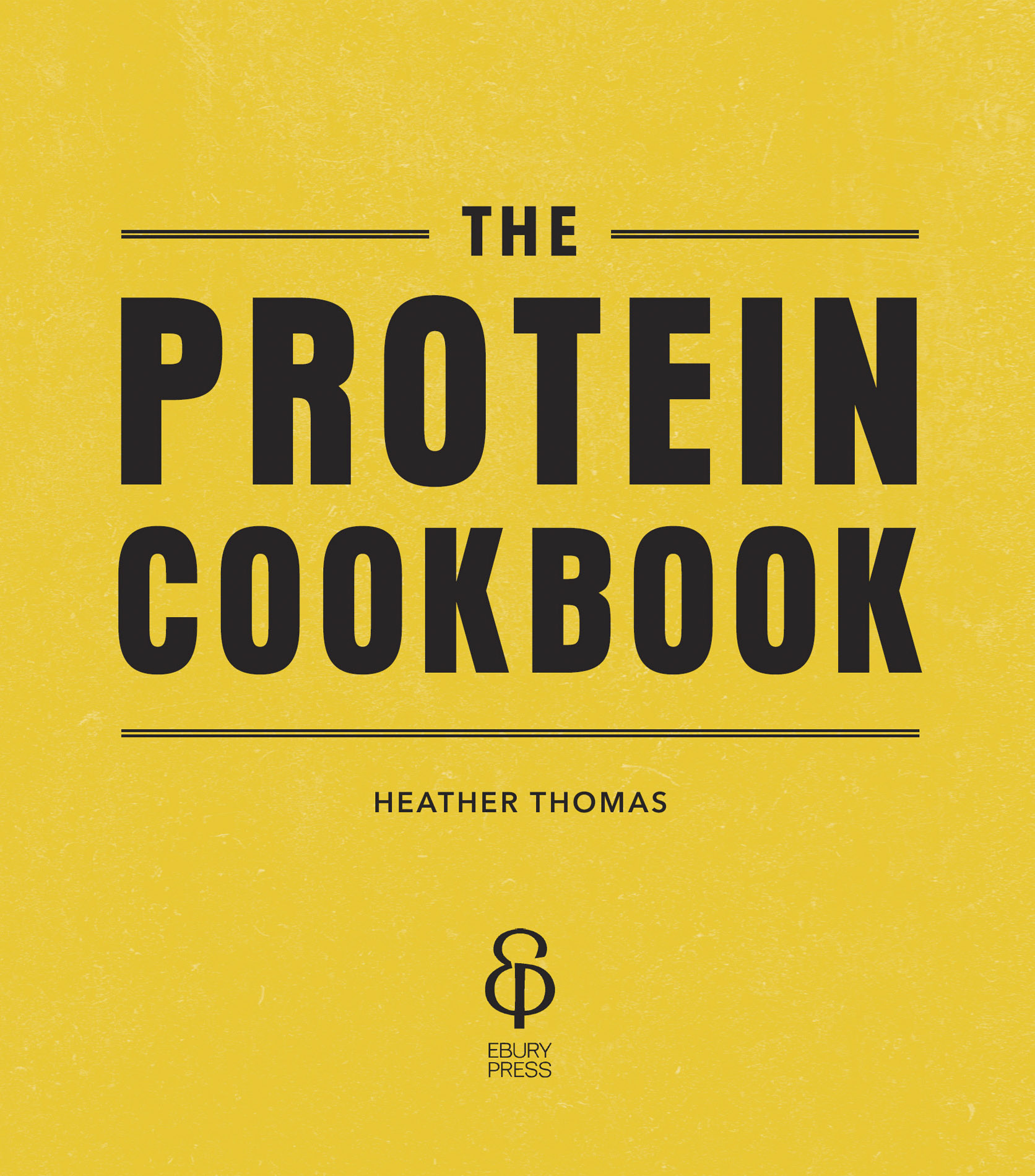
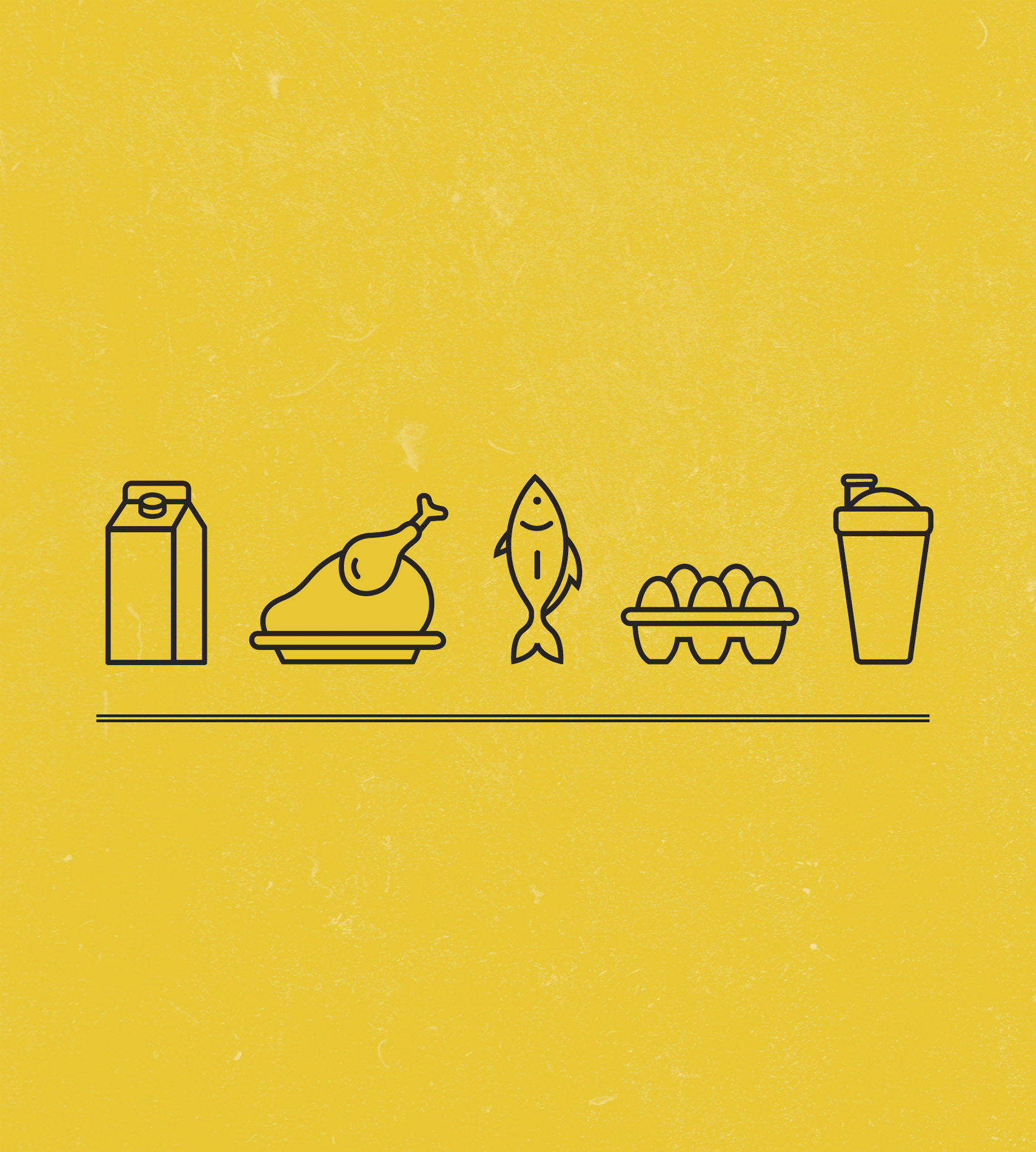
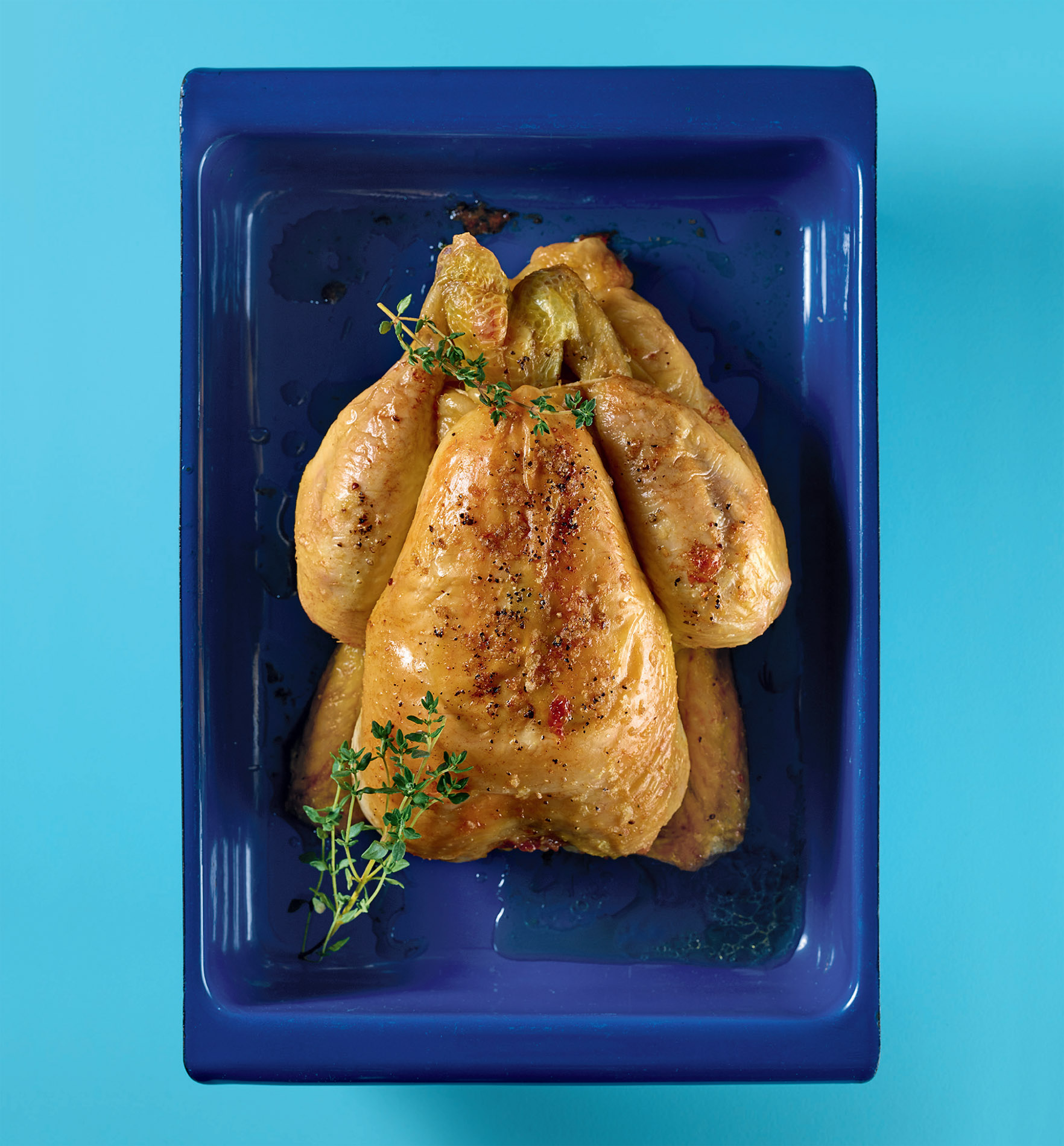
INTRODUCTION
Protein is essential for rebuilding, repairing and maintaining every cell in your body from your internal organs, bones, muscles and blood to your skin, hair and nails. You cant live without protein; it helps to:
- Balance blood sugar levels.
- Improve insulin sensitivity and fight diabetes.
- Control and lower cholesterol and blood pressure.
- Build muscle mass and strength.
- Keep your immune system healthy.
- Prevent food cravings.
- Repair intestinal villi to aid absorption of nutrients.
- Boost your energy.
Protein is made up of organic compounds called amino acids; some of these are produced by your body, while the rest the nine essential amino acids are obtained from the food you eat. These are: histidine, isoleucine, leucine, lysine, methionine, phenylalanine, threonine, tryptophan and valine.
Animal and plant sources differ widely in which amino acids they provide, and although all nine are found in animal proteins (meat, poultry, fish and dairy foods), this is not the case with vegetable proteins (beans and pulses, nuts, seeds and grains), which means you need to eat them in different combinations.
HOW MUCH DO YOU NEED?
The amount of protein you need to support health, fitness and the repair of your body depends on your age, sex, weight and physical activity. The RDA (Recommended Dietary Allowance) for adults is a minimum of 0.8g protein per kilogram of body weight per day to stay healthy. That works out at approximately 5560g (22oz) per day for the average man and 4550g (12oz) for the average woman with a sedentary lifestyle.
To calculate how much protein you need per day, use this simple formula:
- Multiply your weight in pounds by 0.36, or multiply your weight in kilograms by 0.8.
- Double this figure if you are very active and exercise regularly.
Some people, including athletes, pregnant women, nursing mothers and people over 50 years old, have higher protein requirements (see below).
CAUTION: Consuming excessive amounts of protein over a period of time can be harmful to health. Current general guidelines suggest that you should not exceed 3.5g per kilogram of body weight but you should always consult your GP, or a qualified professional, to discuss your individual needs before changing your diet.
ATHLETES
If youre a professional athlete, work out regularly or exercise strenuously, youll need additional protein to build and repair muscles, for energy and to recover from intense physical activity. For effective muscle growth its important to eat a healthy diet and you may need twice as much protein as the average person up to 2g protein per kilogram of body weight per day. If you dont get enough and are following a rigorous training schedule, you are more likely to feel fatigue and suffer from stress fractures and injuries that are slow to heal.
Even if you only exercise moderately, e.g. by walking briskly or stretching, you may need approximately 1g additional protein per kilogram of body weight.
Many athletes, especially those who do weight training, take protein supplements, and these can be useful in achieving your goals. We have included some recipes using protein powder in this book, but you can obtain all the protein you need by eating a healthy and varied diet, which contains plant proteins as well as (or in place of) animal ones.
PREGNANT WOMEN
When youre pregnant the quality and variety of the food you eat is so important to ensure you obtain all the nutrients that you and your baby need. Protein is important for the healthy development and growth of the baby, and to prepare your body for labour and breastfeeding. It is generally recommended that you should consume 1.5g protein per kilogram of weight per day, or between a minimum of 70g and a maximum of 100g, depending on your physical build and activity level. Nursing mothers also have a higher daily requirement for protein at least 65g per day to help them recover from labour and to promote their babies healthy development and growth.
TIP: If youre pregnant or lactating, talk to your doctor, midwife or nutritionist about your individual needs.
OLDER PEOPLE
After 50, and especially after 60, people start to lose muscle mass and their daily protein requirement will be higher. To maintain a healthy weight and strong muscles, and to protect your long-term cardiovascular health, you need to eat more protein-rich foods, especially lean protein, such as beans and pulses, eggs, oily fish and Greek yoghurt. Failure to do so can lead to muscle wastage and less strength, compromised mobility and balance, and taking longer to recover from injuries or illness.
So how much protein should you eat on a daily basis? International studies suggest that you consume 1.2g protein per kilogram of body weight per day (50 per cent more than the RDA for younger adults). Its a good idea to have some protein at every meal and to spread your intake across the day. Aim for 2530g (1oz) per meal.
GETTING PROTEIN FROM YOUR DIET
We can obtain the protein we need from plant as well as animal sources, so theres no need for vegetarians to worry about whether they are getting enough. For example, you might be surprised that even low-fat foods like Greek yoghurt (twice as much protein as regular yoghurt) and cottage cheese are excellent sources of protein, as are oats, peanut butter and lentils. And vegans who eat plenty of legumes (beans and lentils) and a varied plant-based diet can maintain their muscle mass and stay fit and healthy.
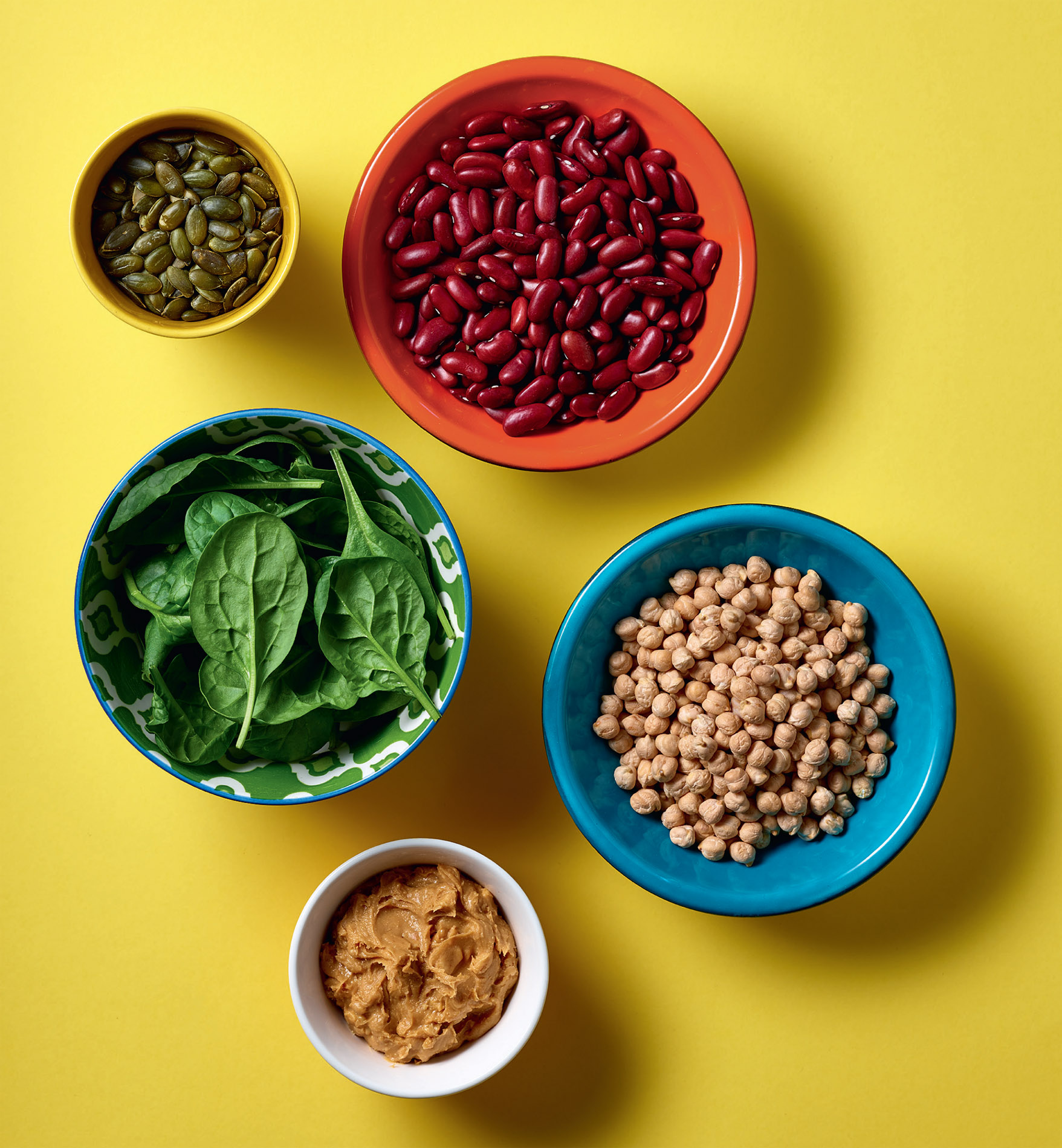
Animal products are complete proteins, which means they contain all of the nine essential amino acids that we can only obtain from food. They include meat, poultry, fish, shellfish, eggs, cheese, yoghurt and dairy products.
Plant proteins with the exception of soya beans and quinoa are incomplete, so you need to eat as varied a diet as possible to get the whole range of amino acids. If youre vegan, theres no need to worry as you can enjoy lentils, chickpeas, beans, nuts and nut butters, quinoa, whole grains, seeds, tofu, tempeh, seitan, spirulina, potatoes and dark green leafy vegetables. Many other vegetables (including broccoli, spinach and avocado) and fruit (apricots and blackberries) also contain small amounts of protein.
NOTE: Lean protein contains fewer calories than carbs and fat and it helps you to lose weight and/or maintain a healthy weight by making you feel full and curbing your appetite, so youre less likely to snack on carbs in between meals.
ARE YOU GETTING ENOUGH PROTEIN?
Some of the warning signs that you might not be getting enough include:
- Hair, nail and skin problems.
- Fatigue and feeling weak.
- Loss of muscle mass.
- Feeling hungry.
- Injuries that are slow to heal.
- Swelling in the abdomen, legs, feet and hands.

